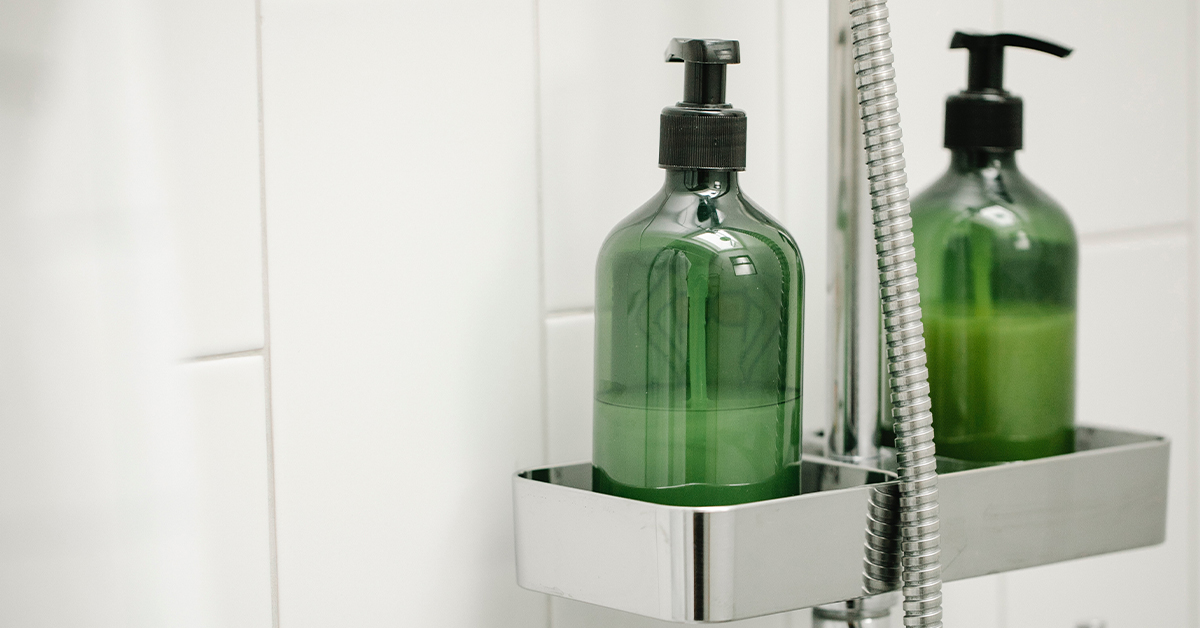Could something as simple and ordinary as shampoo slow down or reverse hair loss? Or is your shampoo actually contributing to your hair loss?
The relationship between shampoo and hair loss is complex. So much depends on your shampoo’s ingredients, the product’s effect on your hair and scalp, and the underlying cause of your hair loss.
Does Hair Loss Shampoo Work?
If your hair loss is caused by psoriasis or another inflammatory condition, prescription shampoos may improve or even reverse the issue. The same is true for hair loss resulting from severe dandruff. If your hair loss is due to other causes (like genetics or aging), a quality hair loss shampoo can be an excellent part of your hair retention regimen.
It’s important to understand that shampoo alone rarely regrows lost hair. Rather, it improves the condition of your hair and scalp, creating an optimal environment for regrowth and retention. A good shampoo also may improve the appearance of your existing hair.
Is There an Ingredient in Shampoo That Causes Hair Loss?
Many shampoos contain ingredients that can damage your hair or scalp. Potentially harmful ingredients in traditional liquid (and some solid) shampoos include:
- Formaldehyde: DMDM hydantoin and diazolidinyl urea are formaldehyde-emitting preservatives frequently used to stave off bacterial growth in shampoo and other grooming products. These known carcinogens can cause scalp irritation, contact dermatitis, or hair loss in sensitive users.
- Fragrances: Artificially scented shampoos can cause scalp irritation or allergic reactions, leading to hair loss.
- Parabens: Many shampoos contain parabens. These synthetic preservatives can extend your shampoo’s shelf life… but they also may disrupt your hormonal balance and cause additional hair loss.
- Silicone: Silicone is a polymer found in shampoos that promises sleek, shiny hair. Unfortunately, silicone – often listed as “dimethicone” on the label – can clog hair follicles and disrupt the hair’s growth cycle.
- Sulfates: Sulfates are surfactant chemicals that create the rich foaminess associated with a cleansing shampoo. They remove dirt and oil, but often do their job too well… sulfates can strip your hair, making it brittle, dry, and prone to breakage.
Dry shampoos may contain additional hair-damaging ingredients. Some of these are:
- Alcohol: Alcohol reduces the oily appearance of hair in the short term but over time it dries out and damages the hair and scalp.
- Liquid petroleum: Dry shampoo may use butane or propane as a propellant. These gases damage and dry the hair – and may cause headaches or nausea.
- Talc: Talc builds up on the scalp, clogging follicles and weighing down the hair shaft. In addition to its negative effects on the hair, talc is linked to respiratory illnesses and cancer.
Which Shampoo Is Best for Hair Loss?
The best shampoo for hair growth is one that promotes a healthy scalp, without stripping your hair or leaving behind follicle-clogging residue. Choose a shampoo free from the scents, chemicals, and toxins that ultimately cause harm to your hair and scalp. Read labels carefully and look for those containing gentle, natural, and organic ingredients.
After extensive research, Reef Hair has chosen to offer our clients Nutrafol products, including scalp care formulas developed specifically for male or female hair. Nutrafol products are 100 percent drug-free and contain vitamins, minerals, and other natural ingredients. Nutrafol shampoo cleanses the hair and scalp of dirt, environmental impurities, and excess sebum. It also hydrates and nourishes while regulating oil production. This leads to a healthier scalp and less stress on your hair, creating optimal conditions for hair growth.
We Offer Nutrafol and a Full Range of Hair Restoration Options
In addition to our scientifically backed Nutrafol products, Reef Hair offers a full spectrum of hair restoration treatments and transplantation options. These include device assisted ARTAS® and NeoGraft® procedures, as well as classic manual FUE and FUT transplants.
Contact us today to set up a consultation. We will perform a full hair and scalp analysis and discuss potential treatments so you can choose the one to help you achieve the hairline you desire.


